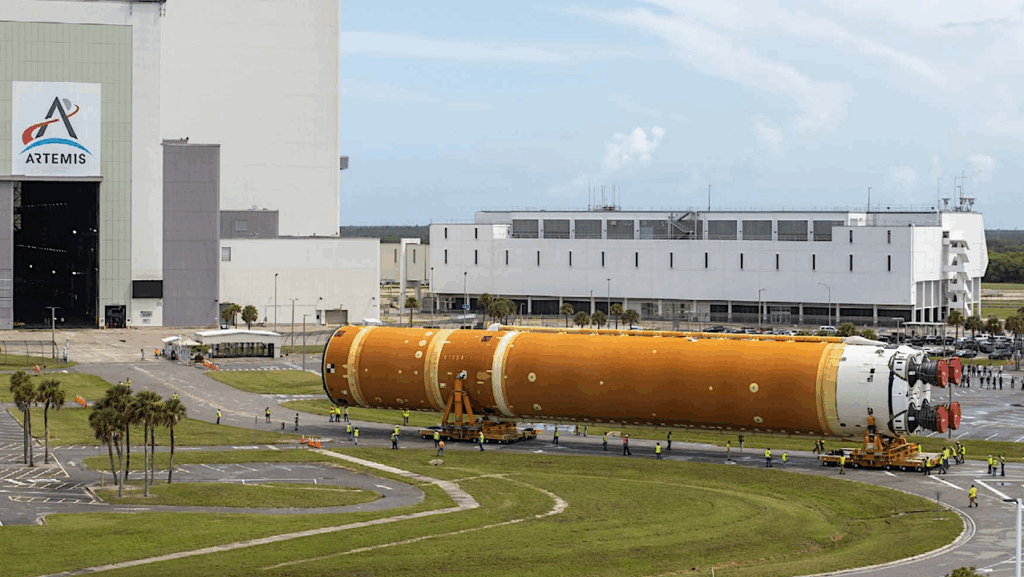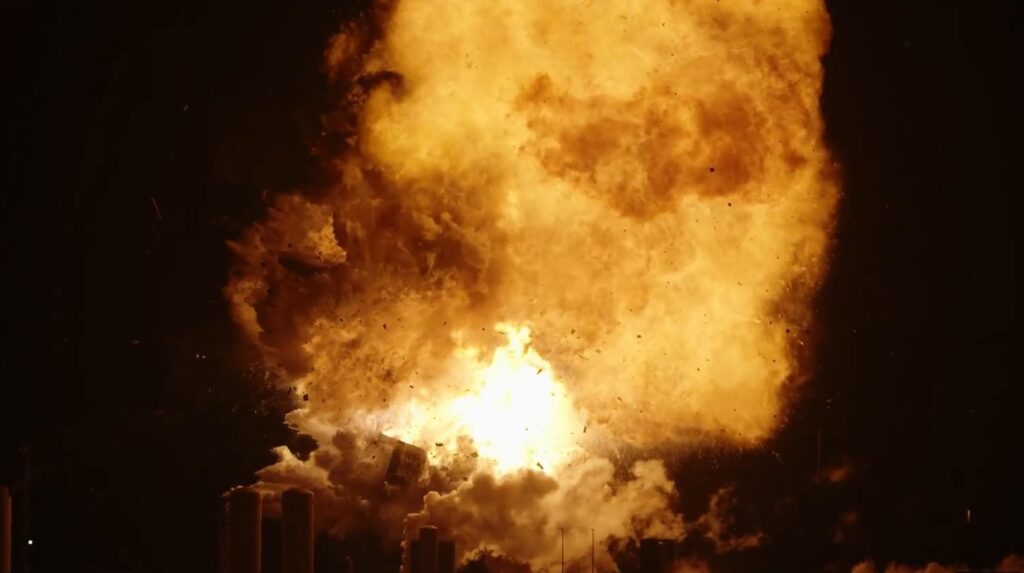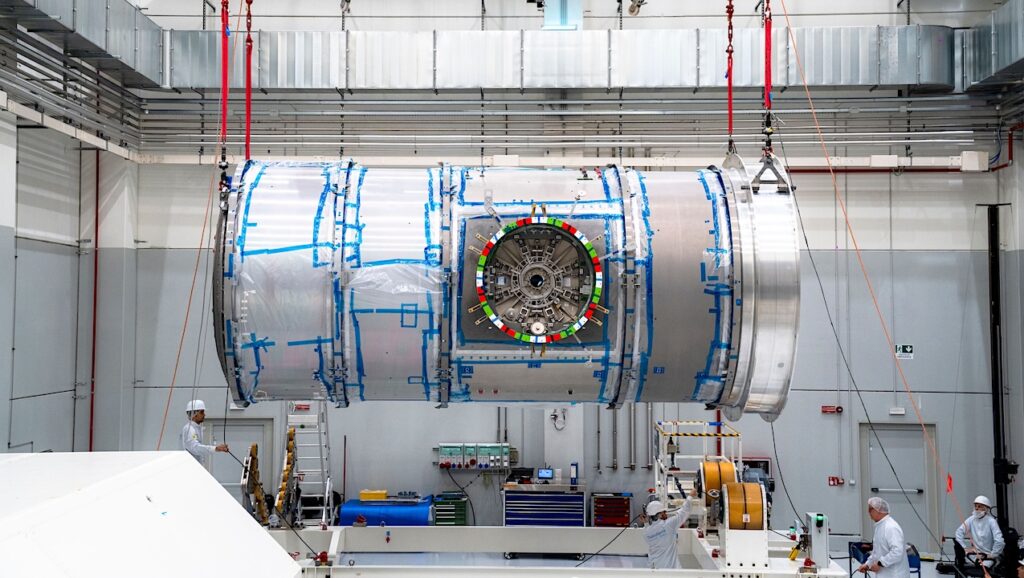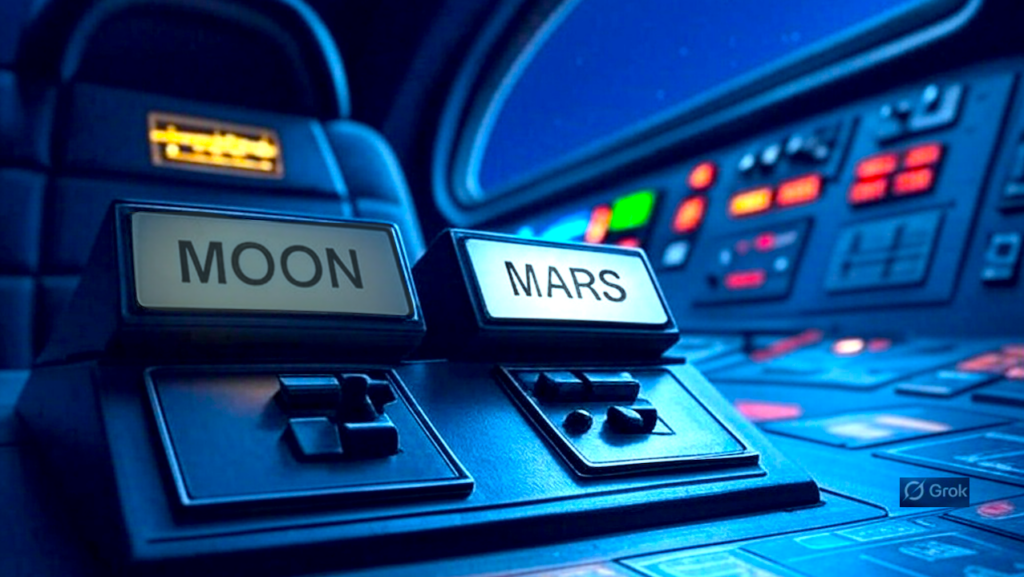Funding Artemis When Other Things Need Funding

Pace, Bowersox Worry About Artemis Funding, Space Policy Online
“The National Space Council’s Scott Pace and NASA’s Ken Bowersox both expressed concern about getting the money needed to execute the Artemis program today. Pace thinks that even if Congress approves the 12 percent increase for NASA this year, the agency’s budget will grow only at the rate of inflation thereafter. Bowersox said although Congress has given NASA a lot of money already, he senses they are not yet convinced of the need to get back to the Moon by 2024. Both spoke to a joint meeting of the Space Studies Board and Aeronautics and Space Engineering Board of the National Academies of Sciences, Engineering, and Medicine.”
S. 2800, National Aeronautics and Space Administration Authorization Act of 2019 – As ordered reported by the Senate Committee on Commerce, Science, and Transportation on November 13, 2019, CBO
“The bill would
• Authorize appropriations totaling $22.8 billion in 2020 for activities of the National Aeronautics and Space Administration (NASA) and would provide direction on those activities
• Extend operation of the International Space Station (ISS) through 2030
• Extend NASA’s authority to enter into enhanced-use lease (EUL) agreements
• Permit NASA to increase voluntary separation incentive payments from $25,000 to $40,000
Estimated budgetary effects would primarily stem from
• Extending operations of the ISS
• Spending of the authorized appropriations
• Potential use of third-party financing to construct and renovate facilities for energy production, launch, and other specialized uses under EUL agreements
Areas of significant uncertainty include
• Estimating the value of investments and amount of government use of facilities constructed by third parties under EUL agreements.”
 Keith’s note: Given the pandemic-induced economic crisis and what will be needed to dig out of it, the probability that there will be adequate funds for a sprint program to land on the Moon by 2024, is rapidly evaporating. Add in chronic delays and cost overruns for the SLS/Orion, chaotic management continuity at HEOMD, Congressional doubts, and a presidential election with an inevitable re-evaluation of space goals and possibly an acting Administrator, and the chance that this will happen at all is minimal. Even if this Administration gets a second term NASA has not done what is necessary to pull this off.
Keith’s note: Given the pandemic-induced economic crisis and what will be needed to dig out of it, the probability that there will be adequate funds for a sprint program to land on the Moon by 2024, is rapidly evaporating. Add in chronic delays and cost overruns for the SLS/Orion, chaotic management continuity at HEOMD, Congressional doubts, and a presidential election with an inevitable re-evaluation of space goals and possibly an acting Administrator, and the chance that this will happen at all is minimal. Even if this Administration gets a second term NASA has not done what is necessary to pull this off.
Look at what the Congressional Budget Office put into their analysis. What happens if NASA does not get funding at the $22 billion level in the next few years? They will either have to cut or cancel things – or delay things which simply ends up costing more in the end. And oh yes, there’s a lot of old stuff at NASA that is falling apart and new facilities that need to be built. The only possible hope NASA can cling to is a huge infrastructure/recovery/stimulus package as we emerge from our current troubles that would enhance government spending. But hope is not the best basis upon which to plan a high speed return to the Moon.









Looks like Administrator Bridenstine recognizes that… This could get very interesting.
https://twitter.com/JimBrid…
Once again, a nail into the coffin of SLS.
One can only hope. The three landers selected for this initial design phase do not use SLS as their launch vehicle(s), so that should be a huge sign that SLS is falling out of favor. It’s too expensive and core production is limited to one every nine months, so even if it’s relegated to launching crew, it will limit NASA’s ability to crew a future lunar base.
There WILL be a change in administration at the end of this year. What the new administration does with Artemis is a big question. I am hoping Biden keeps Bridenstine, as he is the only member of the current administration who has run his department effectively and in a non-partisan fashion.
As far as your first sentence, can you also tell me the lottery numbers?
On a serious note, this epidemic (which has been catastrophic for the old and vulnerable) is a convenience – for which ever administration that is in – in terms of facilitating the shift of timelines significantly to the right. It seems that the timelines were highly unlikely to have been met in the first place and the current issue(s?) will help smooth the.shift right – for which ever side that finds itself in the (unenviable?) position of being in…
This will not stop either side from using the shift to score points – no matter who is in.
No bucks….No Buck Rodgers
https://www.youtube.com/wat…
As we have seen over more than 50 years there will never be a time when there are not competing social and other requirements and expenses. I think the best that can be done is to decide on the percentage of the budget that should be devoted to space and stick with it. Nixon decided on something under 1%. The problem is the socialistic tendencies. When everyone knows that the amount is fixed, then contractors start angling to take as much of that amount as they can. They slow their work. They do not get the job done. The poorer the performance, the less the legislators, who allocate the dollars, are willing to provide and that is when NASA got into their current dilemma. Which means they are getting less money than they were supposed to but they get less because of poor performance. The poorer the performance the less the taxpayers are willing to give.
We have to keep reminding people that while the eventual goal is to grow and ‘off-world’ economy, right now all the money is being spent on Earth and paying people for jobs being worked right here.
Yes, and the technology and knowledge generated stimulates the economy creating additional jobs as it’s spun off.
At this point, it looks like there’s a bigger chance of humans landing on the moon before 2025 on a Starship, or on a chinese secret lander or even a Bob Lazar’s alien reproduction ship, than at an Artemis.
You forget, Starship is one of the lander proposals funded. And if SLS/Artemis is not available the FH/Dragon2 is an option to for sending astronauts to a SpaceX Starship lander…
Word from Texas is that SN5 will be entering the batter’s box this week. Let’s hope it hits a home run.
That’s a tidbit I missed – that an iteration of Dragon was capable of re-entry from Luna. Thanks.
Entering the batter’s box… I like it 🙂
I’ve wondered from the beginning about how Starship’s huge capacity fits into the bigger picture. How are Starship’s capacity, and the abilities of whatever Bezos offers, answers to the same question?
In fact, an actually functional Starship is much more disruptive to the space economy than are F9 and reusability. NASA’s still thinking capsules while SX thinks about 18 wheelers. And how does the money work? Does the cavernous Starship price match an ordinary, OldThink, lander?
Rome still built monuments even after it started getting sacked. And so it goes.
Some of those facilities may need to be closed for good (BRAVC) and NASAs infrastructure budget focused on capabilities that only NASA can uniquely provide.
In some ways that is already happening. Ames visitor center is now just a gift shop. Cafeteria most likely will never open again (it doesn’t get govt funding, has to operate like a business). Like many other restaurants, like Specialtys, have closed and not open again. Also other buildings are scheduled to be torn down.
I love how we endlessly throw around the word “need” without a care as to what the word really means. In human existence, the word “need” actually only corresponds to a very small set of things that the human organism “needs” to survive, as outlined by Maslow in 1943. Do we “need” to go back to the moon to survive? Has anyone yet proven this? We surely want to go back. But as long as we continue to use this word incorrectly and without sufficient proof of definition or conviction, than the all too often results cannot be surprising. Words and concepts matter.
I though I was the only one that questioned the over use of the word need. Nice to know I’m not alone.
Isn’t this just one more round of the never-ending discussion: “Why should we spend money on space stuff when we have so many problems on Earth?”
Congress has passed three COVID related bills totaling more than $3T in spending, with a high potential of more to come. NASA’s $22.8B budget, in comparison, is less than a 1% rounding error. While it is very important to save lives and the economy, it is important to realize that all of that spending on responding to COVID and its impact is just to get us back to where we started.
It is important for the future growth and morale of a people to see progress and that great things are achievable, not to mention potentially bring a massive return on the nation’s investment by finally bringing space into our economic sphere. It seems perpetually lost in the discussion–only to burble up now and again–how “space stuff” tends to lead to solutions for those “many problems on earth.”
Don’t get me wrong, I’m very seriously concerned about the US debt eventually going over the edge into a ruinous spiral that will eat up money for anything we want to do just trying to service the ever-increasing interest payments, which could lead to a hard reset that will devastate the economy for decades, or worse. On the other hand, the ROI for space development, especially compared to most things the government spends money on, seems pretty significant (and not just economic, but in diplomatic and other ways as well). Some times you need goals and projects where only the government can afford to take the risk, in order to move forward in ways that benefit everyone later.